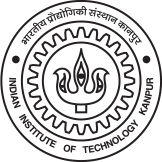
Prerequisites:
3-0-0-9
Course Contents
1. Introduction to Additive Manufacturing AM): General overview, Introduction to reverse engineering, Traditional manufacturing v/s AM, Computer aided design (CAD) and AM. Different AM processes and relevant process physics AM process chain, Application level: Direct processes - Rapid Prototyping, Rapid Tooling, Rapid Manufacturing; Indirect Processes - Indirect Prototyping, Indirect Tooling, Indirect Manufacturing.
2. Materials science for AM : Discussion on different materials used for AM. Use of multiple materials, maltifunctional and graded materials in AM. Role of solidification rate. Evolution of non-equilibrium structure. Structure property relationship. Grain structure and microstructure.
3. AM technologies: Powder-based AM processes involving sintering and melting (selective laser sintering, laser engineered net shaping, electron beam melting, high energy beam involvement). Printing processes (droplet based 3D printing) Solid-based AM processes - extrusion based fused deposition modeling (FDM), Laminated object manufacturing(LOM) Stereo lithography. Micro-and nano-additive manufacturing process.
4. Mathematical models for AM: Transport phenomena models: temperature, fluid flow and composition, buoyancy driven flow, surface tension driven free surface flow (study of molten pool). Case studies: Numerical Modeling of fusion based AM Process, Powder bed melting based process, Droplet based printing process. Residual stress, part fabrication time, part fabrication cost, optimal orientation and optimal layer thickness. Defect in AM and role of transport phenomena on its formation. Simulations (choice of parameter, experimental data and comparison between simulation and experiments) Model validation for different aspects.
5. Process selection planning, monitoring and control for AM: Selection of AM technologies using decision methods. Additive manufacturing process plan: Building strategies and post processing. Monitoring and control of defects, geometry, temperature, composition, phase transformation.
Topics
Current Course Information
Instructor(s):
Number of sections:
Tutors for each section:
Schedule for Lectures:
Schedule for Tutorial:
Schedule for Labs:



